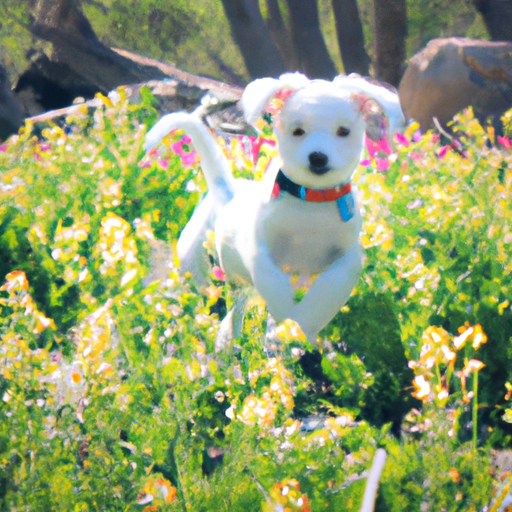Raising a puppy is an exciting, delightful, and admittedly challenging adventure. In this comprehensive guide, we will be specifically focusing on your 14-week-old puppy. We’ll cover everything from feeding and training to socialization and health considerations.
Understanding Your 14 Week Old Puppy
At 14 weeks old, your furry friend is in an interesting phase. They’re not exactly a newborn, but they’re not a full-grown dog either. This is the time when your puppy will be most curious, exploring their world and soaking up new experiences like a sponge.
Remember, every puppy is unique, so don’t worry if your pup doesn’t exactly match up with all the generalities listed here.
Feeding Your 14 Week Old Puppy
Feeding your puppy a balanced diet is crucial at this stage. They should have graduated from their mother’s milk and be eating puppy-specific food.
Here’s a simple schedule you can follow:
- Breakfast: Between 7 a.m. and 8 a.m.
- Lunch: Between 12 p.m. and 1 p.m.
- Dinner: Between 5 p.m. and 6 p.m.
Include a balance of protein, fat, and carbohydrates. Avoid any foods that can be harmful to dogs, such as chocolate, onions, and grapes.
Training Your 14 Week Old Puppy
Training a 14-week old puppy can be a challenge, but it’s also a golden opportunity. This is the time when your puppy is most receptive to new lessons. Here are some key areas to focus on:
- Toilet training: Be patient and consistent. Reward your puppy when they do their business in the correct place.
- Basic commands: Start with simple commands like ‘sit’, ‘stay’, ‘come’.
- Socialization: Introduce your puppy to a variety of people, animals, and environments.
Health Considerations
Your 14-week old puppy should have received their first round of vaccinations, but there are still several health considerations to be aware of.
| Health Check | Importance |
|---|---|
| Deworming | Necessary to prevent parasites |
| Flea and tick prevention | Crucial for outdoor puppies |
| Dental care | Start brushing their teeth to prevent future dental problems |
Remember, regular vet check-ups are important.
Exercise and Play
Your puppy will have bundles of energy at this age, and regular exercise is important. Take them out for short walks, play fetch, or let them run around in a secure yard. Remember, though, your puppy is still growing. Don’t overdo it with strenuous activities.
Grooming Your Puppy
Grooming is more than just keeping your puppy looking cute – it also contributes to their overall health. Brush their fur regularly to prevent matting, check their ears for any signs of infection, and keep their nails trimmed.
Preparing for Adolescence
Your 14-week old puppy is on the cusp of adolescence. This can be a challenging time, as your puppy may start to test boundaries. Be patient, consistent, and loving. This is also the time to consider spaying or neutering your puppy.
Frequently Asked Questions
Q: How much should my 14-week old puppy sleep?
A: Puppies at this age need a lot of sleep, often up to 18 hours a day. This includes both night time sleep and naps throughout the day.
Q: Why is my puppy biting so much?
A: Puppies explore the world through their mouths, so it’s normal for them to ‘mouth’ or ‘nip’. Redirect their attention to appropriate chew toys.
Q: How much food should my puppy eat?
A: The amount of food your puppy needs depends on their size, breed, and activity level. Always follow the guidelines on the puppy food packaging and consult your vet.
Q: When will my puppy be fully grown?
A: This depends on the breed. Smaller breeds tend to mature faster than larger breeds. Your vet will be able to give you more specific information.
Congratulations on your journey with your 14-week old puppy! Remember, this is a time of learning and growth for both of you. Be patient, be loving, and enjoy this special time.



